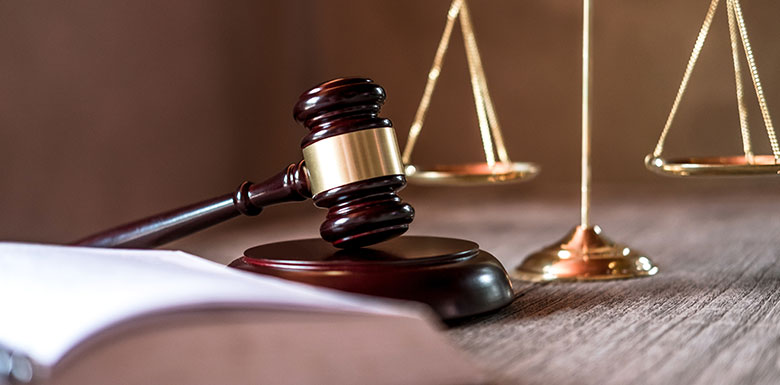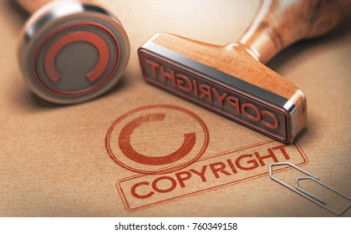Understanding the Impact of the Clean Slate Act on Pennsylvania DUI Records
In recent years, Pennsylvania has taken significant steps toward criminal justice reform by implementing the Clean Slate Act. This legislation offers a powerful tool for individuals with certain nonviolent misdemeanor convictions, such as DUIs (Driving Under the Influence), by allowing their records to be sealed automatically after a period of demonstrated good behavior. This article explores the nuances of the Clean Slate Act, its implementation, eligibility criteria, and the long-term benefits it provides to eligible Pennsylvanians.
Overview of the Clean Slate Act
The Clean Slate Act is a groundbreaking statute designed to modernize Pennsylvania's approach to criminal records management. Enacted to facilitate the reintegration of individuals with past convictions into society, it allows for the automatic sealing of specific nonviolent misdemeanor records after an applicant maintains a clean record for several years. With this law, the Commonwealth aims to reduce barriers to employment, housing, and education that often impede the progress of people with certain past offenses.
Unlike traditional expungement processes, which typically require an individual to petition the court and undergo a potentially lengthy legal procedure, the Clean Slate Act streamlines relief by automatically sealing qualifying records. This automation helps reduce administrative backlog while ensuring that eligible individuals receive timely benefits.
What Records Are Eligible for Sealing?
The Clean Slate Act primarily applies to nonviolent misdemeanor convictions, including certain DUI offenses. It does not extend to felony convictions or violent misdemeanors. Under this framework, eligible cases are identified through a review of the Pennsylvania Online Court System and other criminal databases. Once identified, these records are marked as "limited access," restricting public visibility but remaining accessible to courts, law enforcement agencies, and relevant state departments for legitimate purposes.
It is important to understand that sealing a record is not the same as erasing it. The cases still exist within official databases, but the general public cannot view them. This mechanism balances the interest of public safety with the rehabilitation needs of affected individuals.
Eligibility Requirements for Automatic Sealing
To qualify for automatic sealing under the Clean Slate Act, an individual must meet specific criteria:
- The conviction must be for a nonviolent misdemeanor, including offenses like certain DUIs.
- The individual must have maintained a clean record with no new criminal arrests or convictions for at least a designated waiting period, typically 10 years.
- There must be no active warrants or unresolved legal matters related to the conviction.
Meeting these conditions triggers the automatic process that seals the eligible records, thus providing relief without requiring individuals to take additional legal steps.
How Does the Sealing Process Work?
The process of sealing records under the Clean Slate Act is designed to be seamless and automatic. The Pennsylvania Department of Corrections and the Administrative Office of Pennsylvania Courts regularly cross-reference databases to identify eligible convictions that qualify for sealing. Once these cases are identified, the system changes their status to "limited access," effectively removing them from public view.
Individuals do not need to file petitions or pay fees for this service. The system works in the background to ensure that qualifying records no longer hamper daily life opportunities.
Benefits of Having DUIs Sealed
For many Pennsylvanians, a DUI conviction can have long-term consequences affecting employment prospects, housing applications, credit approvals, and social stigma. By sealing these records under the Clean Slate Act, individuals enjoy several benefits, including:
- Restoration of privacy by limiting public access to past convictions.
- Increased chances of obtaining employment without the burden of public criminal history.
- Improved access to housing by preventing landlords from easily viewing sealed offenses.
- Ability to qualify for educational programs and professional licenses.
- Reduction of social stigma associated with previous DUI offenses.
It is noteworthy that sealed records remain accessible to law enforcement and the courts for specific purposes, such as future background checks conducted during criminal investigations or sentencing scenarios.
Limitations and Exceptions to the Clean Slate Act
While the Clean Slate Act represents a significant step forward, it does not provide universal relief for all past convictions. Some critical limitations include:
- Felony convictions, especially violent or sex-related offenses, are excluded from automatic sealing.
- Offenses involving domestic violence or crimes against children are generally ineligible.
- Records can be accessed by courts and law enforcement agencies for sentencing and investigation purposes despite being sealed from public view.
Furthermore, individuals with multiple convictions or ongoing legal issues may not qualify for sealing until resolved. It is essential to consult legal experts to determine eligibility in complex situations.
How to Confirm If Your DUI Records Have Been Sealed
If you suspect that your old DUI records no longer appear on the Pennsylvania online court system, there is a high probability they have been automatically sealed under the Clean Slate Act. To verify this status, you can:
- Check your criminal record online through the Pennsylvania Unified Judicial System’s portal.
- Request an official record summary from the court or the Pennsylvania State Police.
- Consult with a qualified attorney specializing in criminal law or record expungement.
Remember that cases marked as "limited access" indicate that the records have been sealed and are not accessible to the general public.
Frequently Asked Questions About the Clean Slate Act and DUI Records
Understanding the complexities of the Clean Slate Act can be challenging. Below are some common questions and answers to help clarify frequently raised issues:
- Can sealed DUI records be used against me in future legal cases?
Yes, sealed records remain accessible to courts and law enforcement for legitimate legal purposes, such as sentencing enhancements or bail determinations.
- Do I need to take any action to have my eligible records sealed?
No, the Clean Slate Act automatically seals qualifying records after certain conditions are met.
- Will sealing my record restore my full rights, such as voting or firearm possession?
Sealing a record does not necessarily restore all civil rights. Separate legal steps may be required to regain full rights, depending on the conviction.
- How long does it take for the sealing process to complete?
The process is automated and ongoing, but there may be some delay between eligibility and record sealing due to database updates.
The Broader Implications of the Clean Slate Act for Pennsylvania Communities
Beyond assisting individual recipients, the Clean Slate Act signals a broader commitment by Pennsylvania to criminal justice reform. By facilitating the sealing of outdated nonviolent misdemeanor records, including DUIs, the legislation helps reduce recidivism and promotes economic integration.
Communities benefit from the increased employability of residents who might otherwise face persistent barriers due to their criminal records. This improved integration fosters safer, more stable neighborhoods by empowering individuals to contribute positively to society.
How Юридичний Маркетплейс КОНСУЛЬТАНТ Can Assist You
Navigating the intricacies of the Clean Slate Act and understanding your eligibility can be complex. The legal experts at Юридичний Маркетплейс КОНСУЛЬТАНТ specialize in criminal record relief and can provide personalized guidance to ensure that your rights are protected and that you maximize the benefits offered by this law.
We offer comprehensive consultations, assistance in record review, and advice on additional legal remedies that may apply to your situation. Our mission is to help you move forward confidently with your life, free from the hold of past nonviolent offenses.
- Expert evaluation of your DUI record and eligibility for sealing.
- Legal support for related matters, including rights restoration.
- Guidance on navigating Pennsylvania’s criminal justice system.
- Advocacy for your interests in employment, housing, and education contexts.
Conclusion
For individuals in Pennsylvania seeking relief from the lasting impacts of DUI convictions, the Clean Slate Act presents a transformative opportunity. By automatically sealing eligible nonviolent misdemeanor records after years of good behavior, this legislative reform removes significant obstacles to reintegration and personal growth.
While the process is automatic and designed to benefit qualified individuals, understanding the scope and limitations of the Act is crucial. With informed legal assistance, Pennsylvanians can effectively navigate this system, ensuring their records are properly sealed and that they can seize new opportunities.
Legal Marketplace CONSULTANT remains committed to supporting our clients through this journey, providing expert advice and comprehensive services to help you reclaim your future.
Legal Marketplace CONSULTANT — your trusted legal partner in criminal record relief and record sealing under Pennsylvania's Clean Slate Act. Our experienced team is dedicated to empowering clients with knowledge and legal support necessary to overcome past challenges and build a brighter future.































